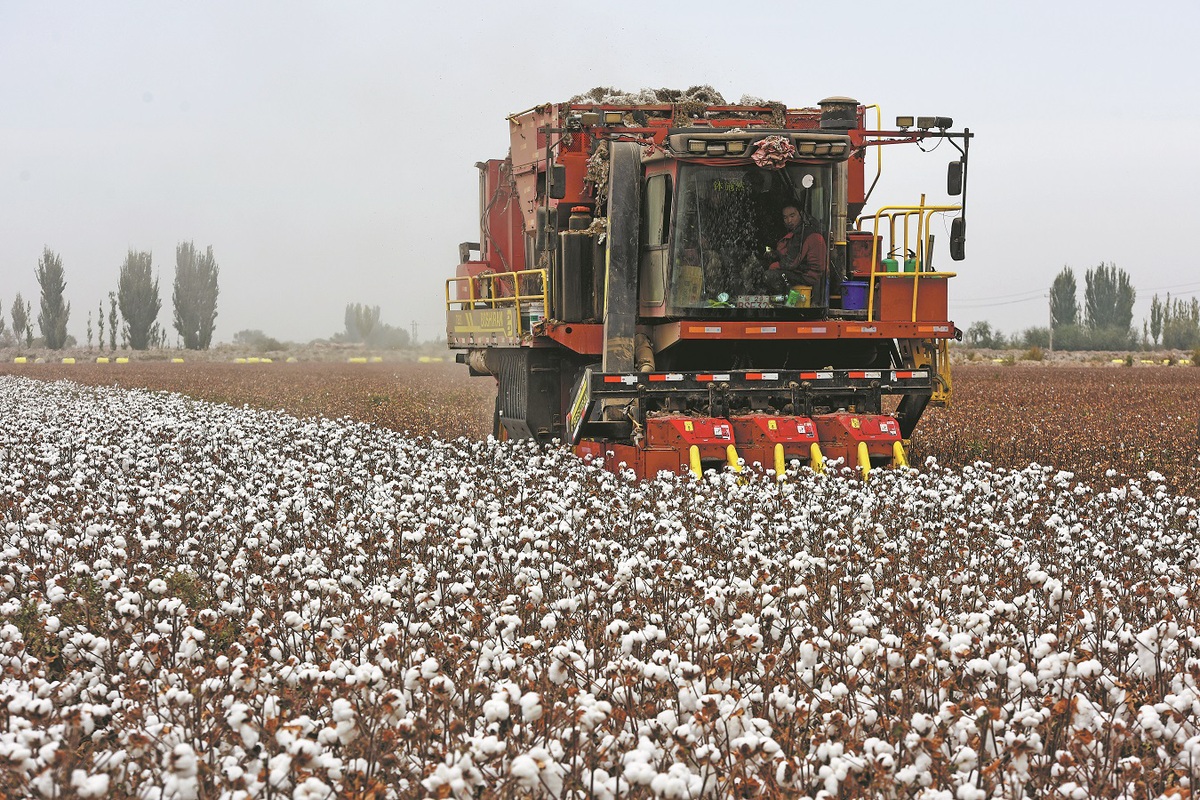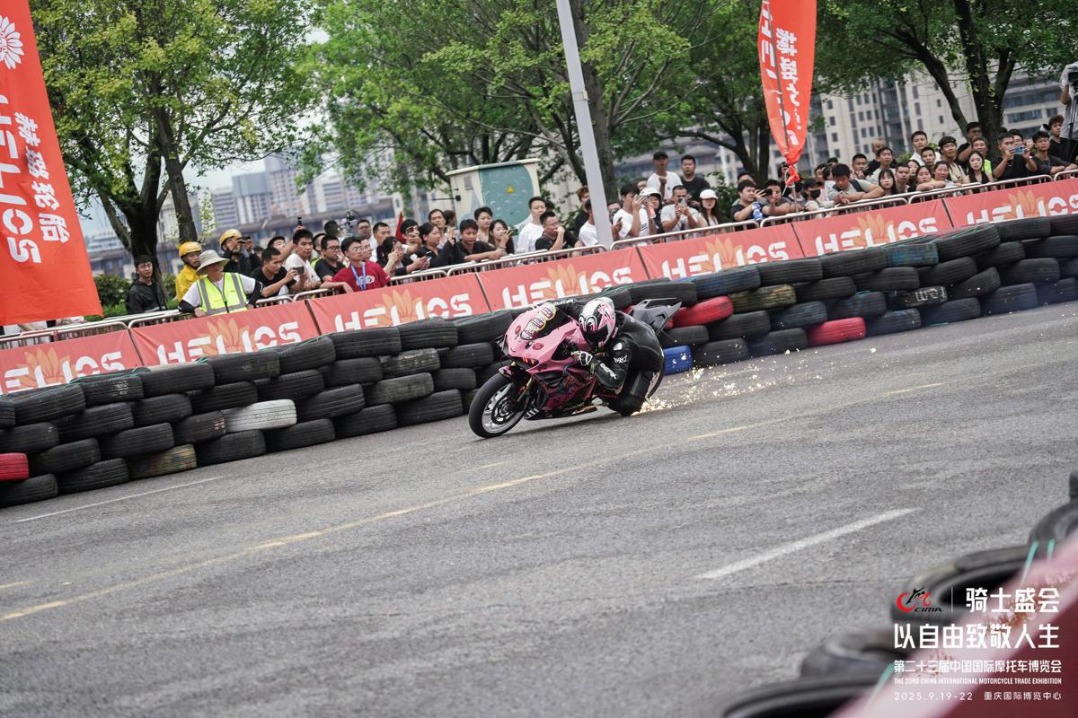Premium cotton crops, prices unravel false claims
Western accusations of 'forced labor' in Xinjiang disproved by high degree of mechanization, seed advances


Li Fugang, a cotton farmer in Awat county, Xinjiang Uygur autonomous region, is looking forward to harvesting the crop he planted in April in about a month.
He owns a 26.67-hectare plot in the county — renowned as the homeland of long-staple cotton — in southern Xinjiang's Aksu prefecture.
"It's going to be another bumper cotton harvest this year," the 50-year-old said. "Besides continuing to push for cotton yields, cotton farmers are more competitive in producing premium cotton as, since last year, we can receive extra incentives for producing premium cotton."
The production of premium cotton will further enhance Xinjiang cotton's irreplaceable role in domestic and global textile markets, he added.
"Compared with cotton from top cotton-producing countries such as the United States and India, I am proud to say that China's cotton, especially that produced in Xinjiang, is the best in the world," Li said.
Since 2014, China has implemented a cotton target price subsidy policy in Xinjiang, which helps ensure stable incomes for growers even when cotton prices fluctuate. And as cotton yields have steadily increased in recent years, so have farmers' incomes, said Li.
When he started planting cotton in 2012, the yield was only about 300 kilograms per mu (0.067 hectare), he said. Last year, it reached around 450 to 500 kg per mu.
Meanwhile, with greater mechanization and the adoption of smart agricultural technologies, labor needs have been greatly reduced and the production cost has significantly dropped, he said.
Li started to use large-scale agricultural machinery in 2018, and mechanization had been fully adopted by cotton farmers around Xinjiang by about 2020, he said.
"With no exception, all farmers in Xinjiang now use autonomous agricultural machineries equipped with the Beidou satellite system to plant and harvest cotton. In fact, automated management covers the entire cotton growing cycle: from sowing and seedling monitoring to irrigation and plant protection," Li said.
























